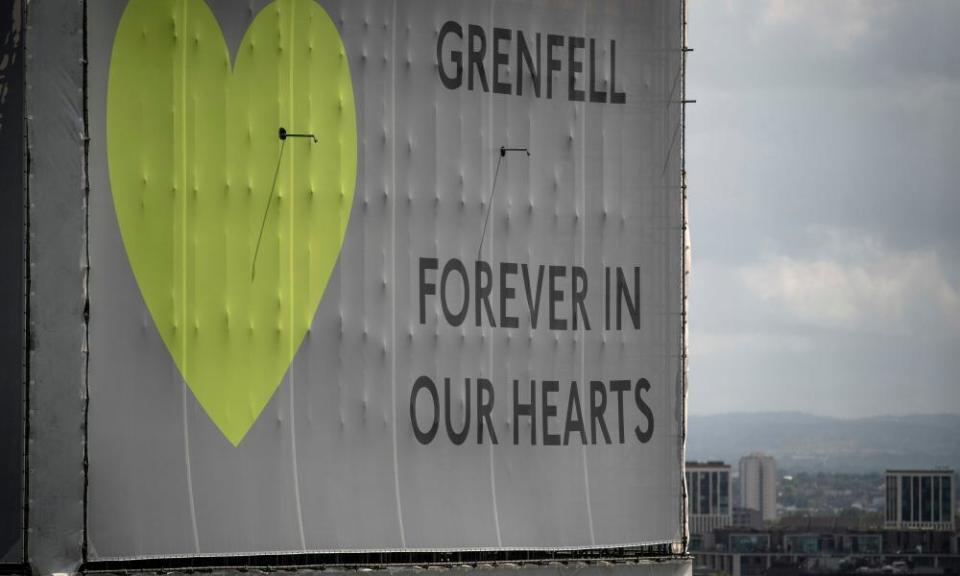NHS urged to improve response to Grenfell toxicity concerns

The NHS is falling short in its response to the Grenfell fire and needs to undertake more comprehensive health screening for survivors, local residents and firefighters, according to an expert studying potential contamination around the tower.
Prof Anna Stec said saliva, urine and blood samples should be collected from all three groups to ensure people do not develop health problems caused by toxicants released during the fire.
Speaking for the first time since the Guardian revealed the preliminary findings of her research last week, Stec said the tests were the best way to mitigate the risks posed to those who may have been exposed to harmful material.
Her remarks came as the Royal Borough of Kensington & Chelsea said it was now actively considering ordering its own tests into possible soil contamination around the tower – almost nine months after Prof Stec warned health officials that there was a potential problem.
Stec, a professor in fire chemistry and toxicity at the University of Central Lancashire (UCL), said the long-term screening and treatment already proposed by NHS England did not go far enough and needed to be rethought.
She welcomed the announcement of a £50m fund for “regular health MOTs” but said this “still falls short of what is required since no attempt has been made to look at the specific effects of pyrogenic toxicants around the tower”.
Stec said: “Saliva, urine and blood samples should be collected and analysed along with other biomarkers, from not only those who were evacuated and other residents in the area but also firefighters and the other emergency responders who helped during the disaster.”
She said she believed most people were likely to be unaffected by the toxins released during the blaze. But she added: “While there is a possibility that a small section of the exposed group may suffer some ill-health effects, we need to ensure these are identified and dealt with properly and promptly.
“I am anxious to ensure that there are no adverse health effects as a result of the tragic fire. I believe this can only come about by specific screening of the population for any health effects resulting from exposure to fire products, and detailed analysis of the environment.”
In early tests, Stec found “huge concentrations” of potential carcinogens in the dust and soil around the tower in west London and in burned debris that had fallen from it. High levels of hydrogen cyanide were also present in soil she analysed at eight sites up to a mile from the tower.
In February she shared her initial findings in private briefings with Public Health England (PHE), the Department of Health, the police and Kensington and Chelsea council. She hopes to finalise her report by the beginning of next year.
In a statement released by UCL, Stec said she was still assessing her findings.
The disclosure of her preliminary findings and the apparent lack of action by senior health officials have caused widespread concern among the communities affected by the fire.
On Monday the Grenfell United group demanded urgent meetings with ministers and senior health officials so they could explain why nobody had warned residents of the potential contamination problem.
Lawyers acting for more than 270 bereaved, survivor and resident core participants at the independent public inquiry have told health officials they must conduct their own detailed study into the potential toxicity of the soil around the site.
The council and PHE had resisted calls to undertake their own soil research or to start the kind of health screening tests suggested by Stec, but in a statement on Wednesday, the council said it was now looking into the matter urgently.
“We know people are worried about possible air pollution and soil contamination,” it said. “This needs to be thoroughly investigated. We will take advice from both Public Health England and the Environment Agency to agree the nature and scope of any testing on this site, and elsewhere. Work on this is already under way.”
Dr Yvonne Doyle, PHE’s regional director for London, said the agency was supporting the council “to come to a decision on what actions are most appropriate”.

 Yahoo News
Yahoo News 